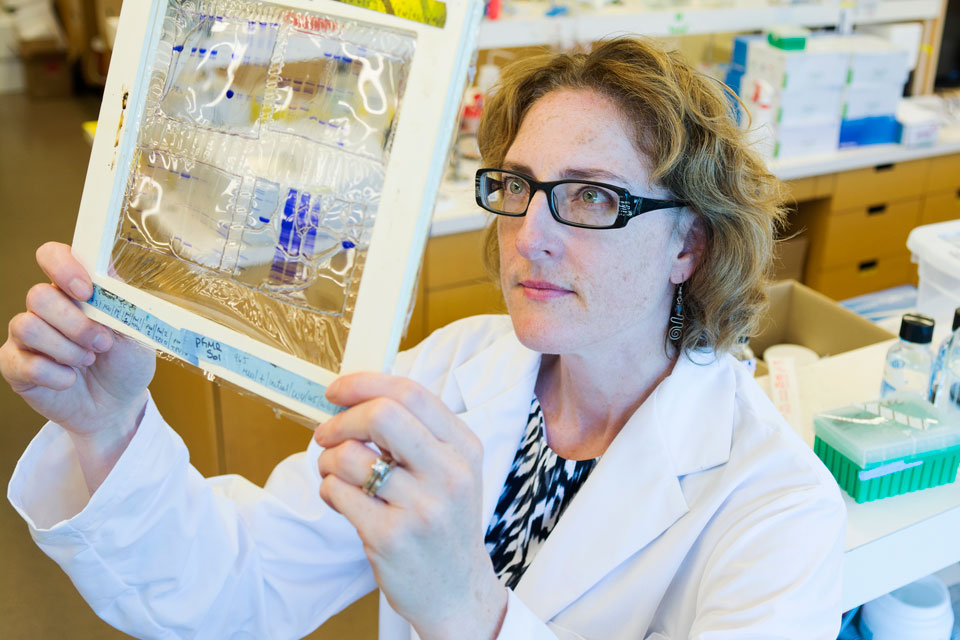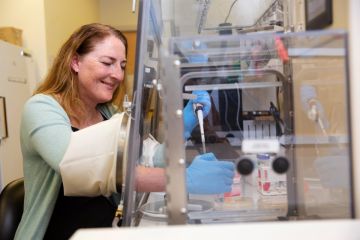Study suggests link between HIV therapy and syphilis outbreaks

Syphilis cases have risen sharply in recent years, primarily affecting men who have sex with men. This increase has been attributed to more-risky sexual behaviour, but the increase of syphilis is outpacing that of other sexually transmitted diseases.
The study team, which includes UVic microbiologist Caroline Cameron, theorizes that this increase might be partly connected to antiretroviral medications used for treatment and prevention of HIV infection.
The study, published today in BMJ Sexually Transmitted Infections, suggests that medications used in highly active antiretroviral therapy (HAART) for treating HIV may affect the body’s immune response to certain diseases, including syphilis.
“HAART has been transformational in the battle against HIV,” says Cameron. “But, if further study confirms our hypothesis, we’ll have yet another reason to intensify the fight against syphilis.”
For more information:
The study in the British Medical Journal’s Sexually Transmitted Infections
Editorial in Sexually Transmitted Infections
News release from the University of British Columbia, Jan. 16, 2017
-- 30 --
Photos
In this story
Keywords: disease, syphilis, HIV, health, research
People: Caroline Cameron











